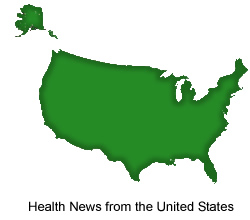
Date Published: 10 October 2007
Congressional briefing highlights problems with Medicare advantage in rural America

AARP, AMA, and National Rural Health Association share plan, patient, physician
findings with Senate
Prominent voices in the Medicare reform debate joined together on Capitol Hill today to highlight concerns with the implementation of private Medicare insurance plans in rural America, and ways to improve access to care for rural Medicare beneficiaries.
In today’s program, “An Evaluation of Medicare Advantage in Rural America,” leaders from AARP, the American Medical Association (AMA), and the National Rural Health Association (NRHA) briefed congressional staff on findings that raise large questions about whether beneficiaries are well served by the tremendous growth in Private-Fee-For-Service (PFFS) plans, which have become so prevalent in rural communities. These plans cost Medicare 119% of what traditional Medicare costs, on average, according to the Medicare Payment Advisory Commission.
“ Private plans in Medicare were supposed to save Medicare money and expand choices for people in rural America, but after a few years in action some private plans have cost Medicare more and left beneficiaries at greater risk,” said Brian McGuire, Associate Regional Director, AARP.
“ Private Fee-For-Service plans are run at a high cost to Medicare and often lure people in with low premiums only to have high cost-sharing when they need it most; for example, for chronic conditions requiring extensive use of services. Solving our nation’s health care crisis demands access and affordable options – not one or the other.”
While Medicare Advantage plans are being paid at a higher rate, patient premiums are increasing and Medicare physician payments are being cut.
“ A full 60% of physicians say that next year’s Medicare payment cut will force them to limit the number of new Medicare patients they can treat, and rural Medicare patients will be particularly hard hit, as additional payments to rural physicians also expire next year,” said AMA Board Member Ardis Hoven, MD.
“ There needs to be a balance between payments to private insurance companies and payments to traditional Medicare. This is the path to preserving access to care for all Medicare patients.”
To provide an analytical perspective to frame the discussion, Marsha Gold Sc.D., a senior fellow at the independent, nonpartisan public policy research firm Mathematica Policy Research, kicked off the meeting with an overview of research findings on the experience of rural areas with Medicare Advantage. These findings showed that 84% of PFFS enrollees are in rural or urban "floor" counties paid more by Medicare to encourage MA offerings. In a recent Health Affairs article reviewing findings on such plans, Gold suggested that policymakers consider "whether beneficiaries are well served by policies that use scarce resources to encourage competition among largely unmanaged PFFS plans."
Brock Slabach, Board Member of the National Rural Health Association, said,
“ Medicare must continue to improve, but the fragility of our rural seniors and the rural health infrastructure demand something more than the Medicare Advantage plans of today. We can and must do better for our rural seniors.”
Source: American Medical Association (AMA).

